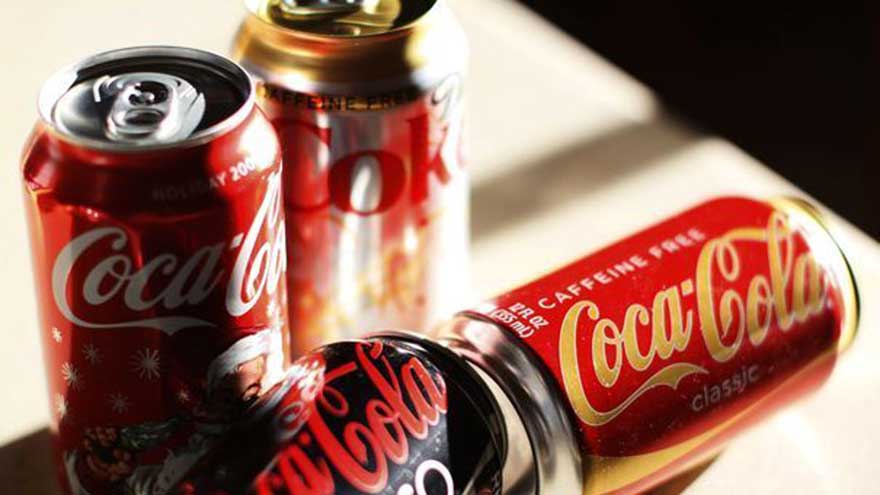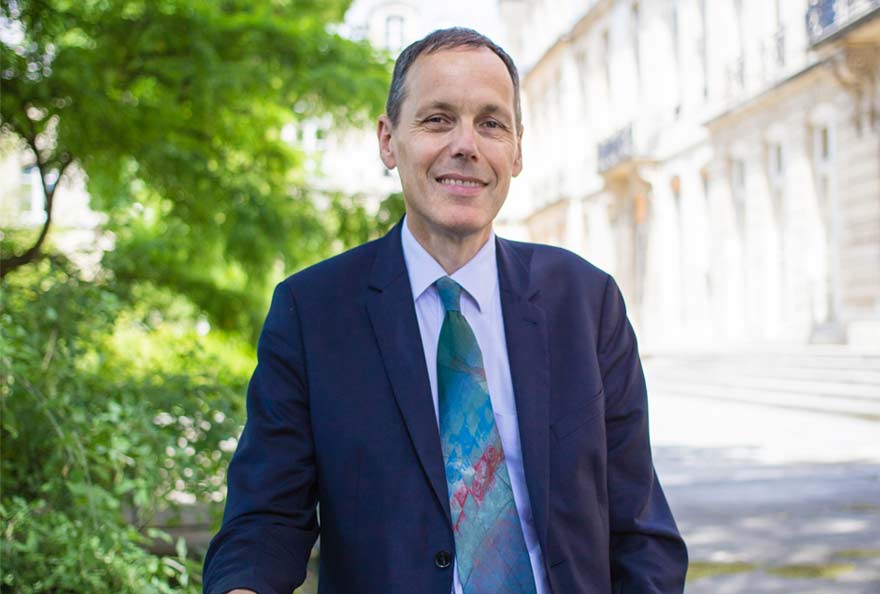List of "Projects supported by Coca-Cola" as published on 23/03/2016 (PDF, 1.4 MB)
Foodwatch had asked Coca-Cola at the end of 2015 to be transparent about its strategy for funding research in Europe. This has now been done. The list of projects and organisations funded in France illustrates how the nearly €7 million injected by the soda giant has been cleverly used to blur the debate on obesity and diabetes. Researchers, doctors, nutritionists and dieticians have pocketed large sums of money and claimed that diet drinks would ultimately be quite beneficial to health. Which they are not. Coca-Cola is taking steps to ensure that the health consequences of sweetened or sweetened drinks are minimised, and to avoid its responsibilities. This is serious.
En reality, soft drinks contribute to the worrying increase in the rate of overweight (30%) and obesity (13%) among adults in France and increase the risk of diabetes, according to several studies. Diabetes kills more than 10,000 people a year in France, is responsible for nearly 8,000 lower limb amputations, 17,000 strokes (cerebrovascular accidents) and more than 11,000 myocardial infarctions each year. It is one of the main causes of blindness and kidney failure.
Light sweeteners: no benefit for diabetics and possibly even risks
Coca-Cola's disinformation strategy is very sophisticated. It must be said that the stakes were high: in 2011, the National Food Safety Agency (Anses) had indeed decided to verify the nutritional interest of sweeteners. Was science going to dismantle, point by point, the arguments used by Coca-Cola to sell its diet products? Worse: was it going to highlight the risks associated with the consumption of intense sweeteners?
In 2015, despite strong pressure from the lobbies, the agency published a report whose conclusions fell like a knife to the soda industry: no, intense sweeteners have no beneficial effect on glycemic control for diabetics. Regular and prolonged consumption of these intense sweeteners could even carry risks. Risks already highlighted by Inserm in 2013 by a study conducted on more than 66,000 women. Contrary to popular belief, the Inserm wrote, the risk of type 2 diabetes is higher when consuming light drinks rather than "normal" sweetened drinks.
Nevertheless, Coca-Cola has gone to great lengths to make consumers believe that its "fake sugar" products - light, zero, life (stevia) - are part of the solution. For the soda giant, French scientists have thus criss-crossed congresses and conferences and multiplied publications singing the praises of sweeteners.
Examples :
French Diabetic Federation: at least €268,552
If you're one of the 3 million people affected by diabetes in France, you've probably been told about the "benefits" of diet drinks that contain sweeteners instead of real sugar. Nearly 8 out of 10 diabetics use these sweeteners regularly, often on the recommendation of their doctor (in one out of two cases), according to a CSA survey carried out for two, shall we say, surprising partners: the sweetener manufacturers (International Sweeteners Association, ISA) themselves and... the French federation of diabetics. Note in passing that Coca-Cola is a member of the ISA. The Federation seems to be ashamed of this support since it has removed the mention of this partnership from its website. But Coca-Cola France is proud: even if no amount relating to 2015 is on the list now public, the brand said in December 2015 to fund, among other things, the training of expert patients accompanying diabetics.
European Institute for Expertise in Physiology (IEEP): 719.200 €.
This is one of the biggest payments by Coca-Cola France to counter, one might think, the threat posed by the ANSES report and, perhaps, the tax on sugary drinks, introduced in 2012. More than 700,000 euros intended to produce "research on intense sweeteners". It is difficult to know exactly what research. But we find, for example, the IEEP behind a comparative study on drinks with or without sweeteners and their influence on insulin conducted since 2012 by Fabrice Bonnet of the CHU of Rennes (results not published to date). Mr. Bonnet spoke openly at the Dietecom trade fair about sweeteners. He praised their "benefits" in a video broadcast on the sweetener manufacturers' YouTube channel (ISA).
National Centre for the Development of Sport (CNDS): €1,118,926
The National Centre for the Development of Sport - a body under the supervision of the Ministry in charge of sport - is dedicating the funds provided by its biggest sponsor, Coca-Cola, to... the fight against youth obesity! Are you overweight? "Do a bit of sport and you'll never look like you're overweight again. But above all, keep buying Coca-Cola products" is essentially what this impressive amount inspires us to do.
French Association of dieticians nutritionists: 117.764 €
Can dietitians and nutritionists be counted on to help us sort out the difference between diet sodas and other sweetener-based products? Coca-Cola has in any case deemed it necessary to pay them for their "scientific and communication" activities.
Dietecom, 1st nutrition fair for health professionals: €124,450
Dietecom gives pride of place to pro-sweetener stakeholders. For example: in 2014, a workshop sponsored by the International Association for Sweeteners (ISA, again) saw Prof. Marc Fantino speak on the topic of hygieno-dietary recommendations... The place to be to convince nutritionists to then convince their customers of the benefits of light products.
CreaBio: €653,798
We find here Professor Marc Fantino, professor at the CHU of Dijon and co-founder of CreaBio, Resource Center for Applied Biomedical Studies, generously supported by Coca-Cola for "research projects on intense sweeteners". Mr. Fantino has been a strong supporter of aspartame for many years and is also an advisor to the International Association of Sweetener Manufacturers (ISA). He is a regular speaker at conferences and congresses such as the Entretiens Bichat and Dietecom. A publication highlights the risks associated with sweeteners? He will discredit it. Thus, while a Danish study (carried out on nearly 60,000 women) concluded that there was an increased risk of premature delivery among consumers of drinks containing sweeteners, Mr. Fantino spoke to midwives during the Entretiens Bichat to come to the rescue of intense sweeteners. When INSERM demonstrated the increased risk of diabetes among diet consumers, Marc Fantino retorted by publishing an article questioning the methodology of INSERM researchers. In 2014, at the Entretiens Bichat once again, he argued that intense sweeteners were of obvious interest to diabetics, going so far as to praise "a study that shows that the use of intense sweeteners is associated with a reduction, albeit modest but significant, in weight, body mass index, fat mass and abdominal circumference". However, after four years of reviewing the scientific literature on the subject, the ANSES concluded that there were no benefits from intense sweeteners.
University of Poitiers : 228.104 €
Coca-Cola even goes through the doors of universities. The one in Poitiers received a small sum to finance a free education unit aimed at giving students "all the keys to a healthy lifestyle". Coca-Cola, a partner for a healthy lifestyle: seriously?
Pasteur Institute of Lille : 22.500 € at least
Jean-Michel Lecerf, head of the Institute's nutrition department, does not hesitate to publicly support sweeteners, speaking at conferences or publications sponsored by Coca-Cola or the European Hydration Institute (also funded by Coca-Cola). Dr. Lecerf is a regular at the Bichat talks, the annual high mass that sees thousands of doctors from all specialties come to attend 300 conferences in Paris. In 2013, in a session devoted to teenagers, Dr. Lecerf said that "light drinks, i.e. sweeteners", "studies even suggest an effect as favourable, if not more so, than water on weight loss, no doubt because they reduce frustration"! Mr. Lecerf readily quotes studies from CREDOC... which counts Coca-Cola among its clients.
Research Centre for the Study and Observation of Living Conditions (CREDOC): €85,000
For analyses on beverage consumption. Let's note the one in 2013 which concluded that the French people who drink more water are those who vary and drink something other than water. It also insisted on the fact that teenagers do not hydrate enough. Understand: they need to drink more, but not just water.
Association of Mountain Doctors : 17.000 €
Partnership around the Powerade drink - with sugars and sweeteners - with the association of 320 mountain doctors. A way to muddy the slopes?
International Prevention Research Institute, IPRI: €690,000
In particular, its researchers produce reassuring studies about sweeteners such as the one that concludes that daily consumption of sweetener drinks is associated with the intention to lose weight. While it lists the names of famous partners such as CERN, several universities, Pfizer or Bayer, the IPRI website does not mention this partnership with Coca-Cola.
Coca-Cola probably won't stop there. In January 2016, at the presentation of its new global strategy, the brand made no secret of its desire to boost its low-calorie references: light, zero, life. Coca-Cola's marketing managers even stressed the importance of promoting the "benefits" of Coca-Cola products.
The benefits? What benefits? And above all, for whom?
Source : Foodwatch
Login
0 Comments
Inline Feedbacks
View all comments












